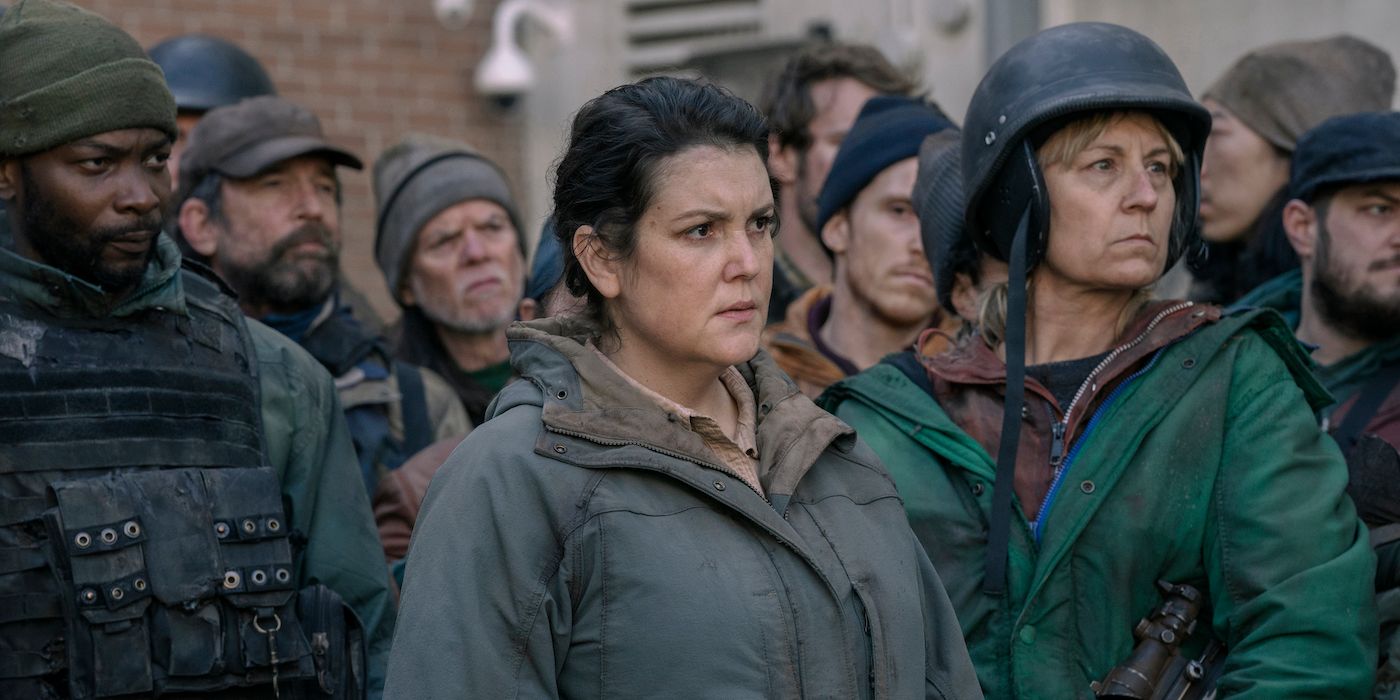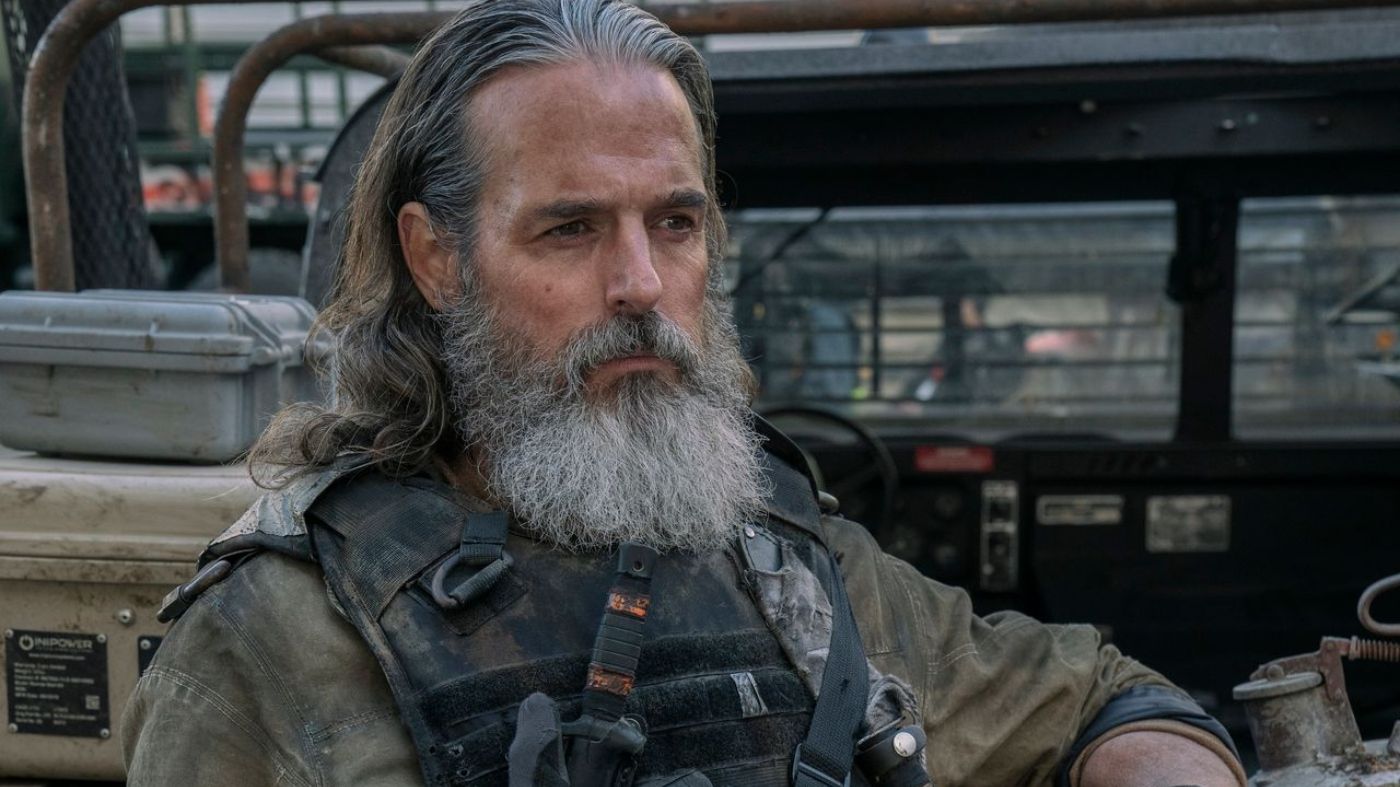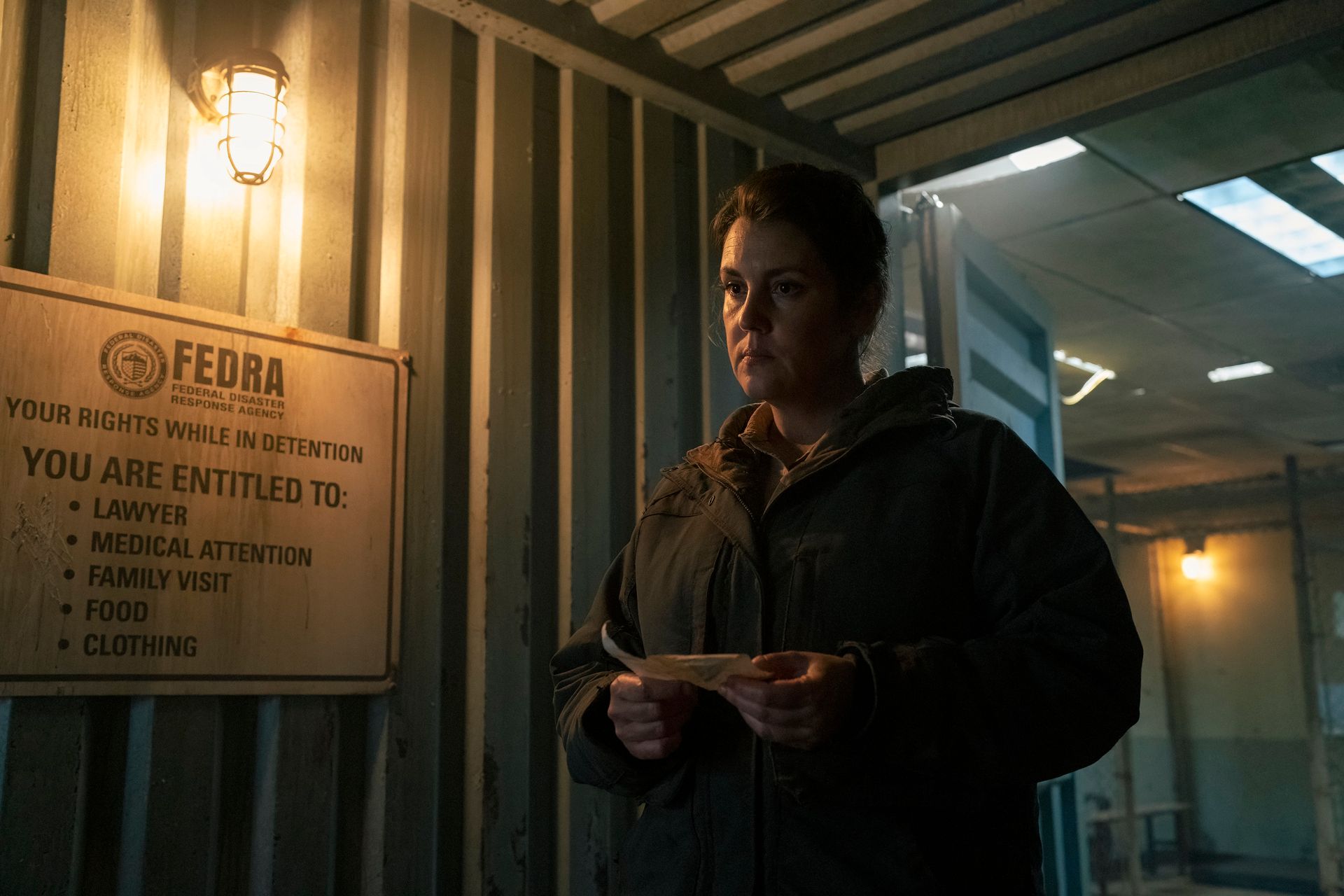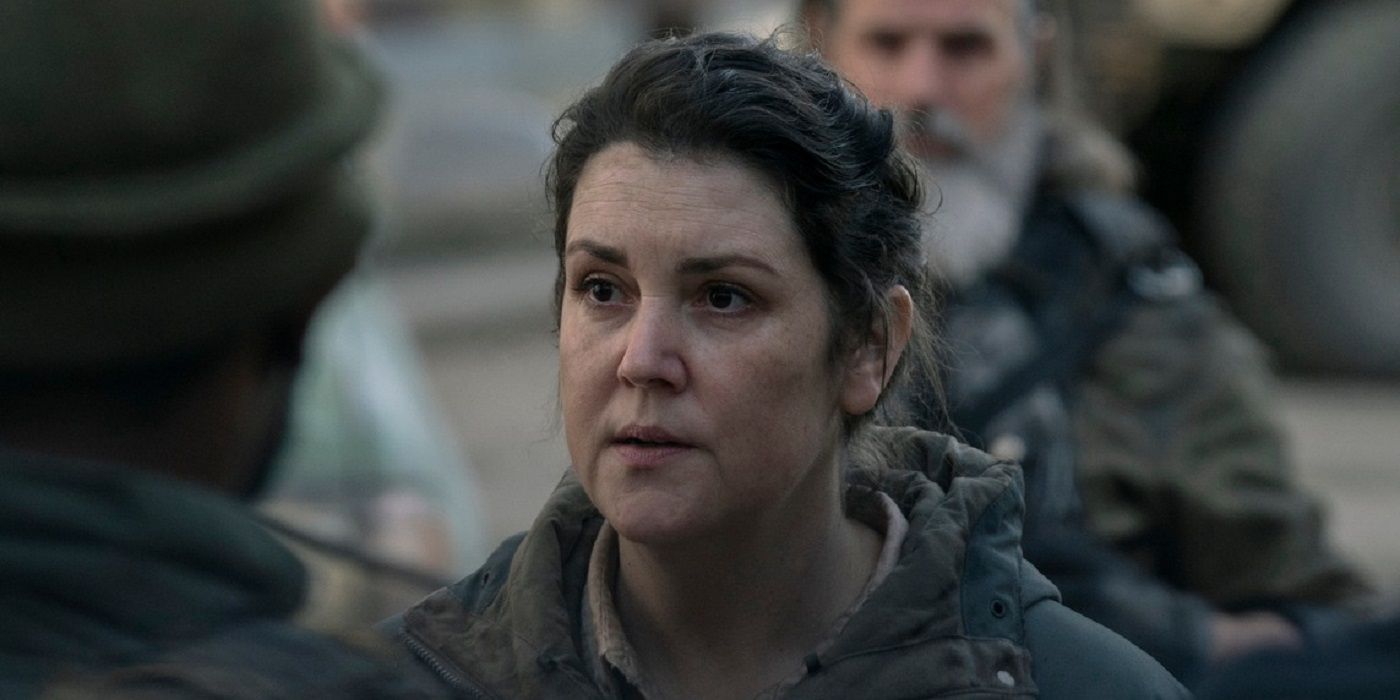Editor's Note: The following contains spoilers for Episode 4 of The Last of Us. One of the themes indicative of dystopian and/or creature-based media is the concept that living human beings are far worse than mindless fictional monsters. In the newest episode of HBO's The Last of Us, Joel (Pedro Pascal) indicates as much; he explains to Ellie (Bella Ramsey) that they camp in the woods overnight not to hide from roaming Infected, but from autonomous people who would do the pair far worse harm than a robbery. Indeed, Episode 4's enemies are a guerrilla group of humans. In this way, the fourth episode both doubled down on a zombie media trope and elevated it with additional nuance.
Upon Joel and Ellie's arrival in Kansas City, Missouri (replacing Philadelphia in the Naughty Dog game), a localized group ambushes and attempts to kill them. Ellie saves Joel's life in the resulting scuffle, and their trail of bodies raises the rest of the company's awareness that strangers have infiltrated the city. Unlike the Boston Quarantine Zone that's overseen by the fascist-leaning FEDRA (and other such Zones across the country), this rebellious militia has successfully overthrown FEDRA officials, dismantled the QZ, and claimed ownership over the area's resources. And the episode doesn't wait long to illustrate how this revolutionary-led regime isn't eminently superior to the government-enforced one.
The Hunters in 'The Last of Us' Series are More Humanized than the Game's Hunters
Dubbed "the Hunters" in The Last of Us game, these antagonists were mostly nameless obstacles designed for player combat. Without any real characterization or face time, the Hunters were an empty threat to overcome before advancing to the next stage of gameplay. Episode 4 positions the Hunters as a sympathetic -- if not condonable -- threat primarily through their leader, Kathleen (Melanie Lynskey, a character created for the series). Kathleen is driven, determined, and clear-headed, plainly commanding the respect of those surrounding her. In a way, her skills invoke the ghost of Tess's (Anna Torv) presence -- except where Tess harbored cold exhaustion, Kathleen is possessed by contained volcanic fury.
Viewers quickly learn that Kathleen's hunting a man named Henry (Lamar Johnson). She holds him responsible for her brother's violent murder at the hands of FEDRA, claiming that information Henry provided resulted in her brother's death. Other leaders might eradicate Henry for their personal gain or protection; tying up loose ends, as it were. For Kathleen, this vendetta is personal. Other Hunters discovering the men Joel killed prompts Kathleen to speculate that Henry called in outside aid, and she rouses the gathered group into action by blaming their deaths on Henry. This man won't stop killing the Hunters unless they kill him first, she claims, which is practically the definition of an "us versus them" mentality.
Whether intentionally or subconsciously, Kathleen cloaks her hunger for vengeance under the guise of punitive actions against the Hunters' enemies. If someone were once a FEDRA accomplice, well, of course, they put the larger group's safety at risk. It doesn't matter that Henry is a sibling looking out for his younger brother Sam (Keivonn Woodard) — a child young enough to doodle crayon drawings that depict the brothers as superheros. Kathleen's brother is all that matters. The discovery that Henry and Sam are close to starving is a tactical advantage to smoke them out, not a fact worthy of empathy. Kathleen doesn't hesitate to weaponize the full might of the Hunters' power against two less fortunate people just trying to survive. Her words "find every collaborator and kill them all" kicks off a manhunt with all the benefits of a QZ at their disposal, raiding homes and driving armored tanks through the streets. Kathleen also pursues Henry instead of addressing a mysterious and obviously dangerous threat to all the Hunters; she reasons away that decision as sensible prioritization.
Kathleen's Motivations are Human and Flawed, Just Like Other Characters in 'The Last of Us'
Kathleen's motivations once again highlight some of The Last of Us's key themes: flawed characters committing violence for sympathetic reasons, and how the desire for revenge supersedes morality. Revenge corrupts as overtly and absolutely as power corrupts, which will assuredly play a significant role in The Last of Us Season 2. Without revealing spoilers, in the video game The Last of Us Part II, both primary characters wrestle with the remaining shreds of their humanity before, during, and after they seek revenge over the death of someone they loved. In addition, Kathleen's selfish decisions foreshadow (in a less direct way) Joel's future actions and the complicated moral questions that will follow. How far is too far to avenge a loved one? How far is too far before a soul can't be redeemed? The doctor Kathleen interrogates in her first scene argues she's indeed "gone too far" and must stop. Kathleen scoffs, arguing that others dying in FEDRA custody wasn't a moral problem for the doctor as long as he stayed comfortable and safe from repercussions.
All of this occurs in tandem with Joel and Ellie's bond growing into something of substance. The lonely souls aren't quite yet a loving partnership, but they're inching their way toward an existence that's more than mere cargo and escort.
In 'The Last of Us,' People are Worse than Monsters
Much like FEDRA and the Fireflies, the Hunters present another example of individuals operating in ways that both echo and subvert the interconnected Infected from Episode 2. The Infected are intrinsically connected to one another through the fungus, and they're a hive mind of violence with a singular goal. From a distance there may be little difference between FEDRA, the Fireflies, the Hunters, and the Infected, but humans with free will and agency are far worse than husks controlled by a parasitic cordyceps. The former choose to do horrible by their fellow man. "They're not FEDRA," Ellie observes from hiding, "and they're not Fireflies. Who are they?" With the weight of experience, Joel answers, "People."
New episodes of The Last of Us premiere every Sunday on HBO and HBO Max. Episode 5 will stream two days early on Friday, February 10.
Read More About ‘The Last of Us’:
-
'The Last of Us' Movie by Sam Raimi That Never Happened
-
Every Character in 'The Last of Us' Series Who Is Not in the Games
-
'The Last of Us': Every Zombie Type Explained, From Runners to Bloaters




